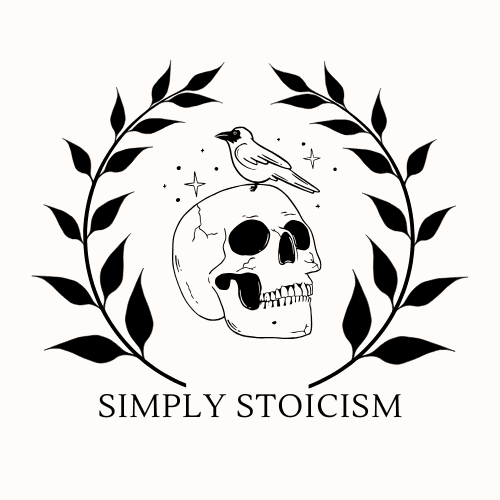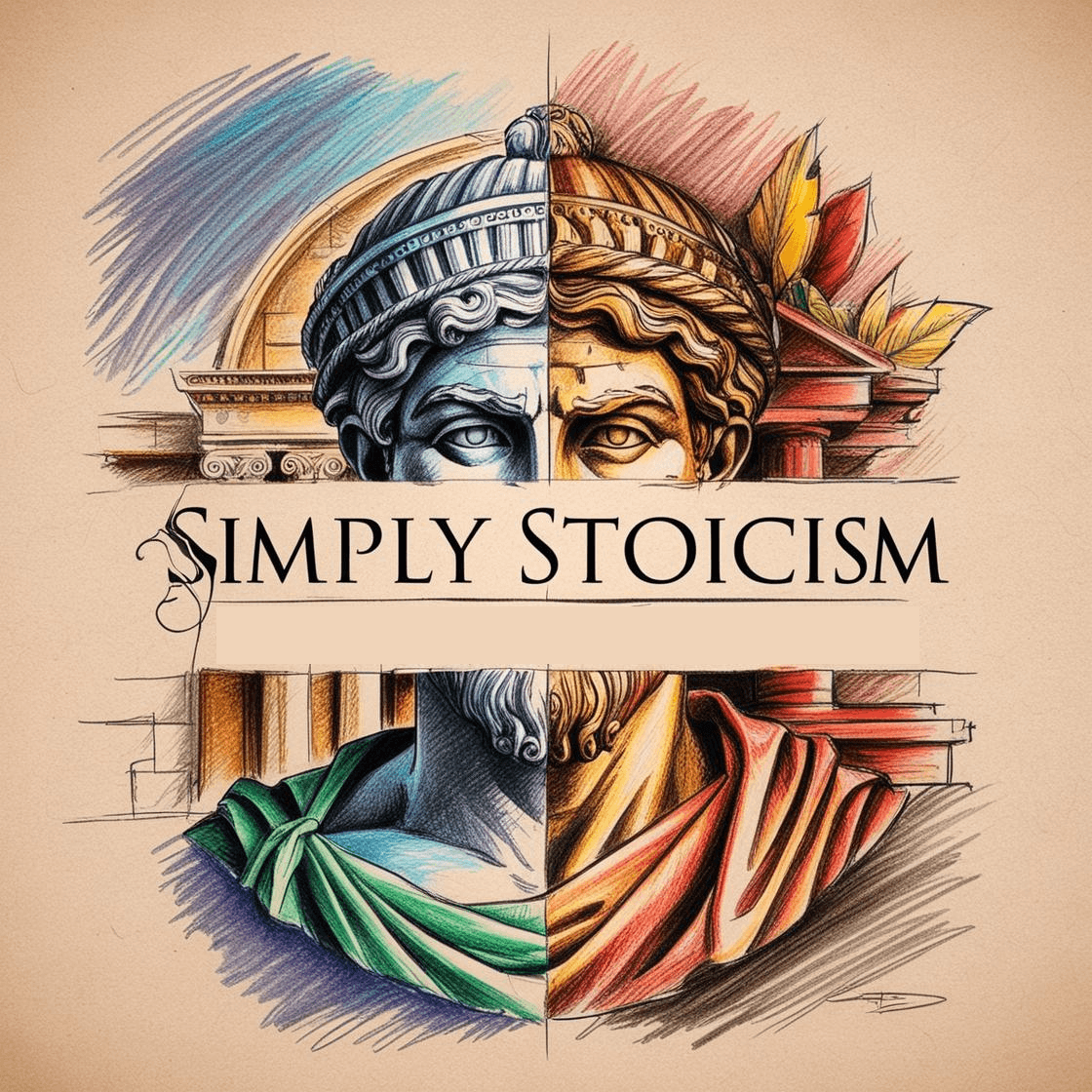What is Stoicism? A No-Nonsense Guide to Ancient Wisdom
Discover how ancient Stoic wisdom can be your mental force field in today's chaos. No philosophy degree required - just practical tools for better living.

Jon High
·
Oct 30, 2024
Ever wished you had a mental force field that could protect you from life's endless parade of annoyances? You know, like when your Wi-Fi dies during a crucial Zoom call, or when someone eats your clearly labeled lunch from the office fridge (we know it was you, Steve). Well, guess what? The ancient Greeks and Romans had exactly that – minus the Wi-Fi part. They called it Stoicism, and it's probably the most practical philosophy you've never properly understood.
What is Stoicism, Really?
Stoicism isn't about being an emotionless robot who suppresses all feelings while staring stoically into the distance (though the name might suggest that). Instead, think of it as an ancient life operating system designed to help you:
Navigate life's chaos without losing your cool
Focus on what actually matters (spoiler: it's not your Instagram followers)
Find genuine happiness (the kind that doesn't depend on your latest Amazon purchase)
The TL;DR Version of Stoic History
Picture this: It's ancient Greece, around 300 BC. A merchant named Zeno loses everything in a shipwreck. Instead of becoming a professional beach bum, he stumbles upon some philosophy books and thinks, "Hey, maybe material possessions aren't all they're cracked up to be."
Zeno started teaching his insights on a painted porch (or "Stoa" in Greek – hence "Stoicism"). Fast forward a few centuries, and this philosophy spread to Rome, where it was adopted by everyone from emperors (Marcus Aurelius) to slaves (Epictetus). Yes, the same philosophy worked for both the ancient equivalent of Jeff Bezos and someone who literally owned nothing.
The Core Principles of Stoicism (Without the Boring Parts)
1. Control What You Can, Accept What You Can't
The Stoics' greatest hit was something called the "dichotomy of control." In simple terms: some things are in your control, most things aren't, and wisdom is knowing the difference.
In your control:
Your reactions. Your judgments. Your actions. Your attitude.
Not in your control:
Other people's opinions. The weather. The past. Whether pineapple belongs on pizza.
2. Your Thoughts Shape Your Reality
The Stoics figured out what modern psychologists are now proving: your thoughts create your reality. As Marcus Aurelius put it (though probably not in these exact words): "Life is what your thoughts make it." Basically, it's not the things that happen to us that cause problems – it's our judgments about those things.
Example: Your train is delayed. That's just a fact. Your thought "This is the worst thing ever, my whole day is ruined!" is what's actually making you miserable.
3. Focus on Being a Good Human
The Stoics believed that true happiness comes from being a decent person, not from external success. They were big on four main virtues:
Wisdom (making good choices)
Justice (treating others fairly)
Courage (doing the right thing even when it's hard)
Self-control (knowing when to say no to that third slice of pizza)
How to Actually Use Stoicism in Real Life
Scenario 1: The Coffee Shop Catastrophe
You're in line for coffee, and someone cuts in front of you. Pre-Stoicism you: Internal rage, passive-aggressive sighing, day ruined. Stoic you: "Is this worth getting upset about? Will this matter in an hour? No? Cool, let it go."
Scenario 2: The Social Media Spiral
You post something clever on social media, and it gets zero likes. Pre-Stoicism you: Questions entire self-worth, contemplates moving to a remote mountain cabin. Stoic you: "My value doesn't depend on digital validation from strangers. Back to doing meaningful things."
Scenario 3: The Work Project Panic
Big presentation tomorrow, and your computer crashes. Pre-Stoicism you: Complete meltdown. Stoic you: "Okay, this is challenging but not the end of the world. What's in my control right now? Let's focus on solutions rather than freaking out."
Common Misconceptions About Stoicism
Myth 1: "Stoics Don't Feel Emotions"
Wrong! Stoics feel everything – they just don't let their emotions hijack their behavior. It's like having emotions as passengers in your car rather than letting them take the wheel.
Myth 2: "Stoicism is Just Putting Up With Bad Stuff"
Nope. It's about taking effective action on what you can control while accepting (not just tolerating) what you can't.
Myth 3: "Stoicism Means Being Super Serious All the Time"
The ancient Stoics actually had a great sense of humor. They just didn't let their happiness depend on external entertainment.
Why Stoicism is Perfect for Modern Life
In a world of:
Constant notifications
Social media anxiety
Political chaos
Economic uncertainty
Endless comparison with others
Stoicism offers:
Mental clarity
Emotional resilience
Practical wisdom
A focus on what truly matters
Inner peace that doesn't depend on external circumstances
How to Start Practicing Stoicism Today
Morning Question: Ask yourself, "What could go wrong today?" (Not to be negative, but to be prepared)
Evening Review: Reflect on what went well and what you could have handled better
The Pause: When something annoys you, take a breath before reacting
Negative Visualization: Regularly appreciate what you have by imagining life without it
Control Check: When stressed, ask "Is this actually in my control?"
The Bottom Line
Stoicism isn't about wearing a toga and speaking in philosophical riddles. It's a practical toolkit for maintaining your sanity in an increasingly chaotic world. It's about building resilience, finding genuine happiness, and becoming the best version of yourself – without taking life too seriously.
Remember: The goal isn't to become an emotionless sage on a mountaintop. It's about navigating modern life with a bit more wisdom, grace, and inner peace. And maybe, just maybe, not losing your cool the next time someone eats your lunch from the office fridge.
Want more ancient wisdom for modern life? Join our free daily newsletter at Simply Stoicism, where we serve up practical philosophy with a side of humor. No togas required.



